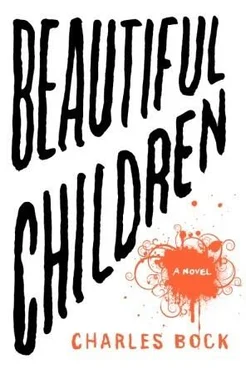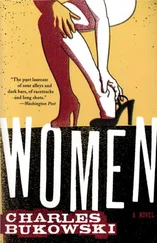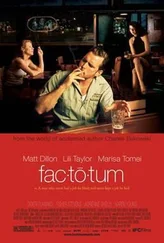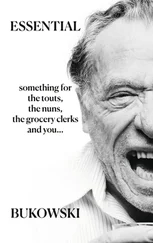A lone building seemed to call out: a darkened shell, its exoskeleton lined with scaffolds and pulley systems. Kenny swallowed dryly. A word he could not read flashed from the high-definition marquee in front of the hull, and was followed by the promise of a grand Christmas opening. Messages seemed to extend through the translucent night, stretching and dancing across the FBImobile's windshield, melding there with the residue of so many brake lights, the effluvia so much hotel glow. And beneath this unrelenting glare Kenny felt very dark. And underneath so many towers he felt so very small, so fragile and uncertain and impossibly alive.
And maybe a time would arrive when he would look back on this particular moment with some semblance of clarity. Years down the line perhaps — when his difficulties were behind him, mostly, and he no longer tossed and turned in bed, repositioning himself so often that it was as if he were wrestling a ghost; when he was emerging from his shell, stepping into a more secure, though admittedly fragile, sense of manhood; when Kenny was by no means talkative, and still could slip back into his shadow self, the haunted young man, but for the most part was making progress, and even had let his guard down somewhat.
A time of relative peace. No more created fabrications to cover for his adolescence, no more apologies about where he grew up. Even a stable, loving relationship. Kenneth, as friends and colleagues would refer to him, would have taken up the hobby of gardening by this time, and would be fastidious about watering the plants he kept in terra-cotta pots on the apartment windowsill. He'd attend therapy sessions twice a week, paid for through the generous benefits package he received from a North Beach — based graphic arts and design firm. There, Kenneth specialized in computer animation and did not engage in much office banter, but was a steady, dependable worker, regarded by coworkers as just about the dearest soul you could ever know.
Maybe this is when he would be able to put it all into perspective.
Equally possible was a different take on Kenny's future. A stretch on the downside of his twenties — after he had cleaned the booze and reek from his clothes, molars, and whole person; after he had bottomed out and pulled himself back up, and had some two and a half years of folding chairs and stale coffee and the dead air of church basements under his belt; when one of the Jew's twin grandsons, despite reservations galore, had hired him back at the pawn shop. A time when all the relapses and recoveries and painful brick-by-brick reconstructed temples of self, they'd led to a true yogi, not a faker this time, but a guru with the most awesome and enlightening Shakti that Kenny had ever felt. At long last, Kenny would be able to accept — truly and utterly — that it was time to get beyond his past, really this time, to let go. Freeing himself of the sins of his youth by forgiving his youthful self.
Or perhaps it would stop being important. After the fifteenth funeral. Once he had been the caretaker of those friends who had been closest and dearest to him. Once he had cradled their muscular bodies through painful disintegrations, watched their gregarious minds go dim. Once all the drug cocktails and protease inhibitors and radical therapies had been countered and for some reason fifteen funerals was the limit, the fifteenth being just too many for a man to feel remorse about the teenager he had been all those lifetimes ago.
One more bead in a necklace of awful memories. One more shameful moment in a lifetime spent without affection. An invisible man pushing a mop through a gray building, unable to interact with people, radiating such bitterness that even when he tried to open up, you could not help but want to shy away.
Or maybe a woman would untie this necklace — she'd enter his life and there would be a moonlit stroll and Kenny would start to tell her about his teen years, and this great burden would be removed from his shoulders, because he'd never really told anybody any of this before.
“We were just fooling around,” he would say. “You know how kids goof.”
Just as possible is a morning when crevices were etched into his face and his hair was thinning. A four in the morning when he lay in bed with a young man he'd eyed at a dance club in rebuilt New Orleans — a sweet muscular thing to whom Kenny had assured his negative status, then sodomized without mercy, the fifth muscle boy he would have done this to during Mardi Gras season. It is possible that a regretful and tired Kenny would lie in bed and share a glass of water with this poor doomed young fool. It is possible Kenny would stare at soft blond curls and blue eyes that were too pure to be innocent. Kenny would answer the question, then listen to a wood-chipped, honeyed response, this idiot unable to believe that anybody grew up in Las Vegas, let alone anybody gay.
Perhaps to shut the trick up, or because he himself had fallen under the ceiling fan's lullaby, this Kenny would start talking, his words redoubling on themselves, catching and pained, with disclaimers and rejoinders, an unorganized stream. Free associating and trying to figure out what to say next, by turns ironic and mocking, yet still failing to cover his deeply ingrained shyness, his fundamental embarrassment. Although, really, what was he embarrassed about, the awakening of a young man's sexuality is a beautiful thing, when you stop and think about it.
Maybe, in the New Orleans hotel room, this graying incarnation of Kenny would become reflective, and would think back to his dad's trailer. Back to magazines spread all over the floor. He would laugh at himself, telling the trick that it wasn't until years later that he realized that a big part of what he'd been looking at in those pictures involved men. Wasn't until his mom had passed away, when Kenny'd gone home to go through everything, he'd had the epiphany: flipping through those old sketches, he'd discovered a significant minority of his old drawings focused on male anatomy. Kenny the Elder would shake his head at just how clueless he had been. And then he'd start to talk about this dude, hadn't thought of him in years, but he used to see him in the hallways at his old high school — it wasn't even a high school, really, but this dude and Kenny would see each other, and they'd had a flirtation, Kenny's teenage self had been too clueless to realize that's what it was, but now it was clear. Kenny would remember other clues he had not been able to see, had been too naïve to understand, and when he was done talking about them, he would return to that long-ago Saturday night, to the fishbowl of the Strip, his swirling confusion, the sense of terror that was unleashed inside of him.
In an altogether different future, a somber man stares out of his window, taking in the distant image of the Bay Bridge.
“So many things in life seem like a big deal,” he says. “But then, when you look back, it's hard to imagine what the fuss was about. You're here, right? And things are how they are. So you maybe tell yourself that it didn't matter. You convince yourself. Or try to, anyway.”
A misting chill, the slightest defensiveness entering his voice. “It's natural to have excuses. Especially when you know you messed up.”
From behind, his partner would wrap his arms around Ken's waist, and Ken would remember just what it felt like pulling up to the Ewings’ home.
He'd been exhausted by then. He and the bald girl had searched out in the desert for what must have been an hour. Flailing around in darkness. You weren't able to see five feet in front of your face, and so all you could do was just call out the boy's name. Kenny would remember shouting until his voice was hoarse. He would remember finding sand in his hair for days afterward. They'd driven up and down I-15 and they'd fought through all the crowds at the party, and it had all been in vain. He'd pulled into the driveway. He was trying to get ready for what had to come next. You know, how am I going to do this?
Читать дальше











